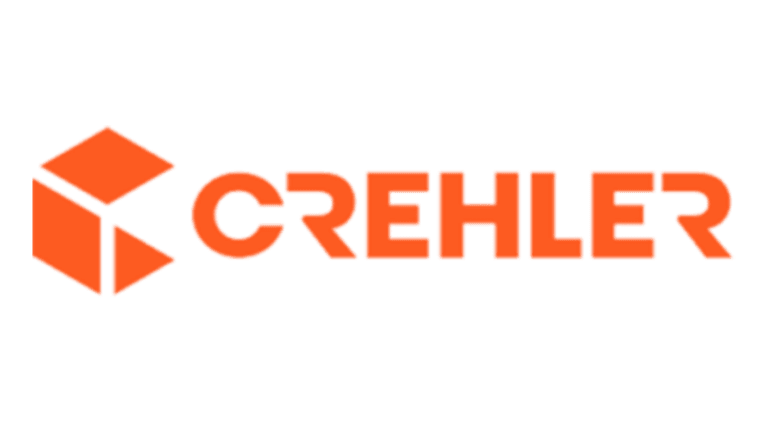Worldwide e-commerce sales are projected to top $7 trillion in 2025. That’s quite an impressive number, isn’t it? That is why selecting the platform that best fuels your online venture becomes even more crucial.
As there are industry leaders that dominate the landscape, like Shopify and WooCommerce, there is also a rising star that is gaining traction: Shopware.
This article will break down those three platforms to help you make an informed decision.
E-commerce platforms comparison: The basics of Shopify, WooCommerce and Shopware
E-commerce platforms come in all flavors and they differ from each other.
- Shopify offers a user-friendly, all-in-one solution ideal for beginners. According to BuiltWith Trends, Shopify is the current leader in e-commerce platform usage.
- WooCommerce, a free plugin for WordPress websites, provides extensive customization but requires more technical know-how.
- Shopware, a rising e-commerce platform, bridges the gap, offering user-friendliness with strong scalability and customization options for ambitious businesses.
Choosing the right platform depends on your technical comfort level, budget, and growth aspirations.
E-commerce platforms comparison: Technical comfort level
Your technical expertise plays a crucial role in choosing the right platform. Here, we’ll delve into the varying levels of technical knowledge required to use Shopify, WooCommerce, and Shopware effectively.
Shopify: Perfect for beginners
Shopify’s intuitive interface and drag-and-drop functionality make it a haven for entrepreneurs with no coding experience. Setting up your store is straightforward, and a vast library of apps simplifies adding features. If you’re just starting out and prioritize ease of use, Shopify is an excellent choice.
WooCommerce: Ideal for DIY enthusiasts
If you’re comfortable with WordPress, WooCommerce offers extensive customization through themes and plugins. However, it may require more technical knowledge for setup and ongoing maintenance compared to Shopify. For those comfortable with some technical tinkering, WooCommerce provides a powerful and flexible platform.
Shopware: Suitable for technically savvy users
While user-friendly, Shopware demands slightly more technical expertise than Shopify. Basic coding knowledge can be beneficial for full customization, but it’s still easier to manage than building a store from scratch. Shopware strikes a balance between user-friendliness and features, ideal for those with some technical experience.
E-commerce platforms comparison: Budget
Cost is a significant consideration for any business. Now, we will explore the pricing structures of Shopify, WooCommerce, and Shopware, helping you understand the upfront and ongoing costs associated with each platform.
Shopify: Predictable monthly costs
Shopify offers tiered subscription plans with clear pricing structures. However, transaction fees might apply depending on your plan, and apps can add up over time. With Shopify, you get predictable monthly costs, but there are potential additional fees to consider.
WooCommerce: Cost-effective core platform
WooCommerce itself is free, making it an attractive budget option. However, you’ll need to factor in costs for themes, plugins, web hosting, and potentially, a developer for customization. WooCommerce offers a free core platform, but the total cost can increase depending on your chosen features and customizations.
Shopware: Open-source advantage
The community edition of Shopware is free to use, similar to WooCommerce. There are also paid versions, depending on what you need. Check this comparison of Shopware paid plans.
Hosting, themes, plugins, and potentially, developer fees will need to be considered. Shopware offers a cost-effective option similar to WooCommerce, but keep in mind the additional costs associated with running the platform.
E-commerce platforms comparison: Growth aspirations
As your online business flourishes, your e-commerce platform needs to keep pace. This section will analyze how Shopify, WooCommerce, and Shopware handle growth, ensuring your chosen platform can support your ambitious plans.
Shopify: Seamless scaling
Shopify’s robust infrastructure effortlessly handles high traffic volumes. Upgrading plans allows your store to grow without worrying about technical limitations. If you have ambitious growth plans and prioritize ease of scaling, Shopify is a strong contender.
WooCommerce: Scalability with expertise
WooCommerce can be scaled through hosting upgrades and specific caching and performance optimization plugins. However, managing scalability might require more technical knowledge compared to Shopify. WooCommerce can be scaled for growth, but it demands a more hands-on approach.
Shopware: Built for big dreams
Shopware is designed for scalability, perfect for businesses with extensive product catalogs and ambitious traffic goals. Its open-source nature allows for custom development to support future growth. Also, paid plans offer many advanced features. Shopware is ideal for businesses with big dreams, offering the flexibility and power to handle significant growth.
E-commerce platforms comparison: Ease of use
The ease of use of an e-commerce platform impacts how quickly you can launch your online store and how efficiently you can manage it. Let’s see how Shopify, WooCommerce, and Shopware stack up in terms of user-friendliness.
Shopify: The beginner’s paradise
Shopify reigns supreme in user-friendliness. Its intuitive interface and drag-and-drop features make setting up and managing your store a breeze, even for those with no coding experience.
WooCommerce: Learning curve for extra control
While WooCommerce integrates with WordPress, it requires some familiarity with the platform. This translates to a steeper learning curve compared to Shopify but offers greater flexibility for those comfortable with some technical aspects.
Shopware: Striking a user-friendly balance
Shopware positions itself between Shopify and building a store from scratch. While user-friendly, it demands slightly more technical knowledge than Shopify. However, it remains significantly easier to manage than complete custom development.
E-commerce platforms comparison: Design and customization
Crafting a visually appealing and user-friendly online store is crucial for attracting and retaining customers.
Shopify: Curated themes and apps
Shopify offers a variety of themes and apps in its app store to customize your store’s look and feel. This ease of use comes with a potential downside: additional costs for premium themes and apps.
WooCommerce: A sea of options
WooCommerce boasts a vast selection of free and paid themes and plugins due to its open-source nature. This allows for the most extensive customization but can be overwhelming for beginners navigating the volume of choices.
Shopware: Open-source power for developers
Shopware provides a high degree of design flexibility with its open-source code. Themes and plugins are available, but the platform caters more to developers seeking extensive customization options to create unique online experiences.
| Feature | Shopify | WooCommerce | Shopware |
| Ease of use | Drag-and-drop functionality, intuitive interface | Requires familiarity with WordPress | User-friendly, but steeper learning curve than Shopify |
| Design & customization | Curated themes and apps | Vast selection of themes and plugins | Open-source code for extensive customization |
| Pricing | Monthly subscription plans with transaction fees (for some plans) | Free core platform, additional costs for themes, plugins, hosting | Free community edition, additional costs for hosting, themes, plugins (or paid versions) |
| Scalability | Scales with plan upgrades | Requires technical expertise and potentially plugin solutions | Designed for scalability and high traffic volumes |
Choosing your e-commerce champion
The best platform depends on your specific needs and budget. Consider your technical skills, budget, and growth plans. Don’t hesitate to explore free trials offered by all three platforms to get a hands-on feel before making your final decision.
Here’s a quick guide:
- The beginner’s choice: Shopify
- Strengths: Unbeatable user-friendliness, drag-and-drop functionality, intuitive interface, vast app store for extended features.
- Ideal for: Entrepreneurs with no coding experience seeking a user-friendly platform to launch and manage their store effortlessly.
- For budget-conscious entrepreneurs: WooCommerce
- Strengths: Free core platform, extensive customization options through themes and plugins, caters to a variety of budgets.
- Ideal for: Cost-conscious businesses comfortable with WordPress and willing to invest time in learning, managing and optimizing the platform.
- For businesses seeking extensive customization and scalability: Shopware
- Strengths: Open-source platform for extensive customization, designed for scalability to handle large product catalogs and high traffic volumes.
- Ideal for: Established businesses with ambitious growth plans and technical expertise (or a development team) to leverage Shopware’s full potential.
Summary
Choosing the right e-commerce platform is crucial for building a successful online store. This guide has equipped you to compare Shopify, WooCommerce, and Shopware across key factors like ease of use, design flexibility, pricing, and scalability.
CTA: If you’re still unsure about the perfect platform match, we can help! Feel free to reach out to us for further guidance
FAQ
Is Shopify better than WooCommerce?
There’s no single “better” platform. Consider your priorities: ease of use, pricing or extensive customization. Shopify: Easier to use, good for beginners. WooCommerce: More customizable, potentially cheaper.
Should I switch from WooCommerce to Shopify?
Consider your needs. Consider ease of use, growth plans, and budget. Shopify might be easier to manage and scale, but has monthly fees.
Is Shopify better than WordPress?
Shopify is a dedicated ecommerce platform, while WordPress is a website builder. WooCommerce adds e-commerce functionality to WordPress.
Is WooCommerce still relevant?
Yes! It’s powerful and budget-friendly for those comfortable with WordPress.
Is Shopify more SEO-friendly than WooCommerce?
Both platforms offer good SEO capabilities. Shopify’s user-friendly interface might make SEO implementation easier for beginners, but WooCommerce offers more control over SEO elements for experienced users.
Who uses Shopify the most?
A wide range of businesses use Shopify, from independent entrepreneurs to large corporations. It’s popular for its ease of use and scalability, making it suitable for businesses of different sizes.
What are the disadvantages of using Shopify?
While convenient, Shopify has some downsides:
- Transaction fees: Depending on your plan, you might incur transaction fees for each sale.
- Limited control: Shopify offers a closed ecosystem with less control over functionalities compared to open-source platforms like WooCommerce.
- App costs: Additional features often require paid apps, which can add up over time.
Why Shopify is faster than WooCommerce?
There may be many reasons, but here are possible two:
- Shopify’s infrastructure: Shopify invests heavily in maintaining high-performance servers, ensuring fast loading times for your store.
- WooCommerce’s dependence on plugins: An abundance of plugins can slow down WooCommerce stores, especially if not managed efficiently.
Is WooCommerce 100% free?
The core WooCommerce platform is free. However, running an online store with WooCommerce often incurs additional costs for themes, plugins, web hosting, and potentially, a developer for customization.
Who competes with Shopify?
Shopify’s main competitors include:
- WooCommerce (discussed previously)
- BigCommerce: Another all-in-one e-commerce platform.
- Wix Ecommerce: Offers e-commerce features within their website builder platform.
- Shopware: A powerful e-commerce platform ideal for larger businesses with technical expertise.























